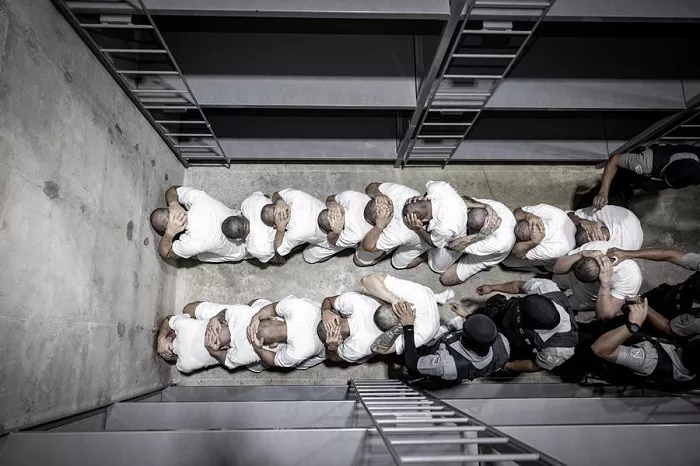WASHINGTON, April 23 (Xinhua) — The forced removal of Kilmar Abrego Garcia, a Salvadoran immigrant, has ignited a fierce political and legal battle in the U.S., intensifying debates over the Trump administration’s hardline immigration policies.
Abrego Garcia, 29, was deported to El Salvador last month and placed in a maximum-security prison—despite a 2019 immigration court ruling that permitted him to remain in the U.S. While U.S. lawyers called his deportation an “administrative error,” the administration later labeled him an MS-13 gang member and declared he would “never live” in America again.
A Case at the Center of a Constitutional Clash
The deportation has escalated into a legal showdown, with the Supreme Court upholding a lower court’s order for the U.S. to “facilitate” Abrego Garcia’s release. Yet the administration has resisted, arguing that El Salvador holds ultimate authority over his detention.
Abrego Garcia, a construction worker and father of three, denies gang ties and has no U.S. criminal convictions. His case has drawn sharp criticism from Democrats, who accuse the White House of disregarding judicial orders and due process.
“This is a constitutional crisis,” said Senator Chris Van Hollen (D-MD), who visited Abrego Garcia in prison last week. Trump fired back on social media, mocking Van Hollen for “begging for attention” in El Salvador.
Partisan Divide Over Immigration Enforcement
The controversy comes as Trump ramps up mass deportations, framing the crackdown as fulfilling his mandate to remove “criminals” from the U.S. But critics argue the administration is overreaching—both legally and ethically.
“The administration’s stance is that lower court rulings don’t matter if they disagree,” said Clay Ramsay, a University of Maryland researcher. “This case tests whether they believe even the Supreme Court can constrain them.”
Allegations of Abrego Garcia’s gang affiliation stem from a 2019 arrest outside a Home Depot, where police noted his hoodie bore symbols they linked to gang culture. Court documents cite an unnamed informant who identified him as an MS-13 member, though he was never charged.
Protests and Allegations of Racial Bias
Over the weekend, demonstrators gathered outside the White House, brandishing signs like “Stop Illegal Deportations!” and “The Constitutional Crisis Is Here!”
“This administration is targeting people of color based on stereotypes—tattoos, hoodies—not evidence,” said protester Mrs. Wood, who traveled from Pennsylvania. “It’s white supremacy in action.”
Trump defended his policies Monday on Truth Social: “I’m removing criminals, but the courts won’t let me. We can’t hold trials for everyone—it’d take 200 years.”
Broader Implications
Legal experts warn the case could set a dangerous precedent for presidential power. “If they can ignore courts on immigration, what stops them from deporting citizens next?” asked Ramsay.
With the 2024 election looming, the battle over Abrego Garcia’s fate underscores the deepening ideological rift in U.S. immigration policy—and the escalating fight over who holds ultimate authority: the presidency, the courts, or the law itself.
Related topics:
- Quebec Calls for Federal Immigration Cuts, Sparking Concern Among Businesses
- Hong Kong Defends Immigration Policy After UK MP Denied Entry
- Trump’s Immigration Crackdown: 3 Ways It Could Affect U.S. Citizens


